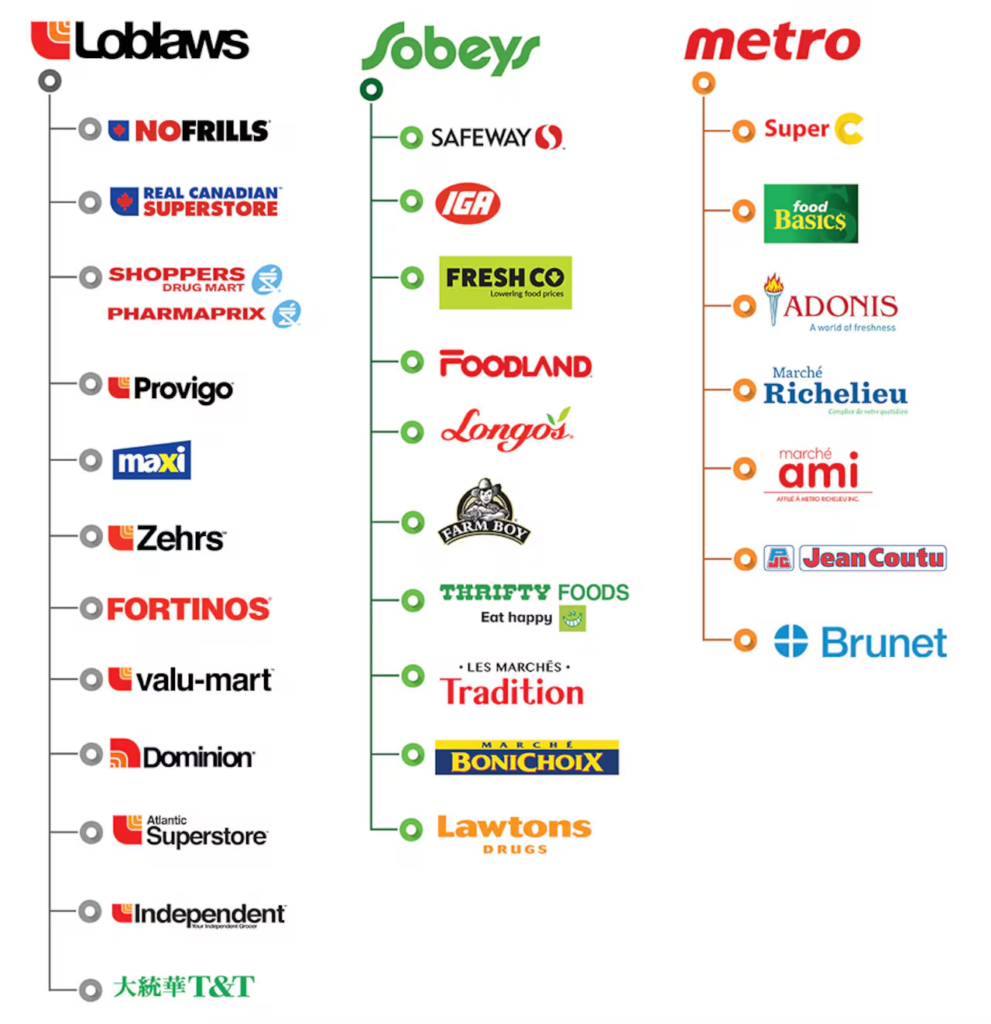Foreign policy includes a variety of objectives, including economic ones. During the Cold War, up to around 1990, Canada’s role in the world was pretty clear. We were part of NATO, North American Aerospace Defense Command (NORAD), and the G7. We worked with those groups – and other allies when possible (Australia, South Korea, Israel, etc.) – to defeat or contain communism and to be a positive force in the world while also looking out for our own interests.
The ambiguous term “middle power” was sometimes used to describe us. This sometimes meant that we were middle sized compared to the major powers (or even just the five UN Security Council permanent members). At times the term was used because we saw ourselves as a bridge, broker, or peacemaker. We often were the first to offer peacekeepers when they were needed to calm down a conflict. Lester B. Pearson winning a Nobel Peace Prize in the 1950s was part of this image we had of ourselves.
Even twenty years ago, with the Cold War over, our image and role was not that much different, though China was still an opponent to the Western alliances in many respects, and Russia had briefly been included with the G7 to form the G8. However, with Putin’s rise, Russia was moving away from the West – but was not yet seen as a major threat.
When in 2012, Mitt Romney said that Russia was the US’s “number one geopolitical foe”, he was derided, though of course China was the more obvious rival and foe of the US despite its increasing trade with the US and Europe.
The US was, and is, Canada’s largest trading partner, but since at least the 1980s and the rise of both globalization and neoliberalism, Canada has been trying to diversify trade. We have signed a variety of trade deals, including NAFTA (which added Mexico to the 1988 FTA), a deal with Chile, another with Israel, and so on. Canada’s participation in the Commonwealth and La Francophonie was also meant to help us gain influence and trade with what had been termed “Third World” nations in the Cold War – these countries were also sometimes called LDCs (Least Developed Countries).
And then came BRICS.
On November 20th, an article in the Globe & Mail suggested that Canada ask for “observer status” in the expanding BRICS economic group, described on Wikipedia as an “intergovernmental organization comprising nine countries – Brazil, Russia, India, China, South Africa, Iran, Egypt, Ethiopia, and the United Arab Emirates. BRICS was originally identified to highlight investment opportunities”.
The term BRICS (Brazil, Russia, India, China, South Africa) originated in a 2001 research paper by Goldman Sachs economist Jim O’Neill which predicted that the growth of these nations would challenge the G7 economies.
With the invasion of Ukraine in 2022, Russia is now once again seen as the major threat to Europe, and China remains the most formidable overall rival to the US and the G7 nations. India used to be called “non-aligned”, but meanwhile has grown in economic and military power and is not considered to be a threat to the US or the West. It does, however, have close ties with Russia (notably, India buys military equipment and sanctioned oil from Russia). While India has had border disputes and other friction with China, at the same time it remains in the BRICS group.
Turkey, a NATO member, is seeking partner status in BRICS because it is frustrated at its continued exclusion from the EU. Argentina declined to join, but Saudi Arabia is still considering it.
Meanwhile, with Trump’s election victory in the US, it looks like for at least the next four years, the US is headed back towards isolationism in terms of foreign policy – combined with tariffs and protectionism that may target a wide range of countries. And Trump is likely to reopen USMCA/NAFTA as well, which might mean major trade concessions from Canada, and bigger ones from Mexico.

Trump is not a big fan of NATO, and will demand increased military spending from its members. At the same time, he is likely to push Ukraine into peace with Russia on terms favouring Russia, and that might preclude Ukraine from becoming a full member of NATO (though it might join the EU).
So, is this the future? The US as an isolationist country that is a bully on trade issues and no longer sees itself as shaping the world based on liberal democratic principles, the EU as a block that is a little bigger than it is now, and BRICS expanding to include more and more countries as the world’s biggest trading block, albeit one based on rules favourable to China and India, the world’s two most populous nations?
Left out of this are Australia, New Zealand, the post-Brexit UK, Japan, Korea – and of course, Canada.
Unlike the US, Canada is part of the 11-member Pacific Ocean oriented Comprehensive and Progressive Agreement for Trans-Pacific Partnership (CPTPP), which emerged out of the failure of the Trans-Pacific Partnership (TPP) after the first Trump administration refused to ratify.
Trump is the proverbial “bull in a China shop” when it comes to the role of the US in the world.
The US has a bright future, given its large population and economic power, which includes its technological advantages and its natural resources, including in energy. The US has an ability to take in immigrants, while China is aging and shrinking too quickly for immigration to mitigate, even if China were open to immigrants. India is growing and has great potential, but it is highly unequal and still very poor, with many of its best people wanting to emigrate to richer English-speaking countries. Hindu nationalism and illiberal policies under Prime Minister Modi also complicate its potential to thrive.
What happens to Canada, which is likely be trapped in a relationship with the US (and Mexico) where every few years, the US beats up on its two trading partners to gain even more advantageous trading terms with them? Could Canada ever join the EU, which the UK just left at great economic cost?
Despite currently being a liberal democracy with strong ties to the US, NATO, and the G7, could Canada ever join BRICS? It seems antithetical to how we see ourselves, we would have little influence, and it might conflict directly with our economic and other ties to the US.
What about starting a new group to parallel BRICS – one that would exclude the US and the EU as well as BRICS members? This could be seen as either the leftovers or holdouts from these other blocks, or maybe even be seen as a throwback to British colonialism if the main members were the UK, Canada, Australia, and New Zealand – if Japan and South Korea decided not to join it.
Ideally, or eventually, a US President other than Trump might recognize that there is a need for an economic organization or alliance to counter BRICS or even to lure away key members of BRICS. Russia is mainly an arms and oil exporter. China has a history of predatory deals under the Belt & Road initiative that look attractive to poor countries but turn out to favour China or to saddle a struggling nation with debt or leave impoverished countries with infrastructure that fails to live up to promises or is of substandard quality.
In this total global context that I have described above, Canada needs to get its act together, and get creative as well as forward thinking, rather than muddling through without any overall plan, objectives, or goals. What strategy, or strategies, should we adopt to ensure that we remain prosperous and have some control over our own destiny instead of having to passively accept that we have to take whatever deal the US will offer us in future?
When Brian Mulroney became Prime Minister, he did a number of things to placate the Americans to improve relations with them, while getting little in return. For example, Mulroney effectively dismantled or defanged the Foreign Investment Review Agency (FIRA). Having done this, Mulroney then decided to enter into the Free Trade Agreement (FTA) with the US.
Canada was in a weak position, for two key reasons. First, Mulroney had already given away our best cards to negotiate with, as noted above. Second, Mulroney had no fallback position or alternative, other than the status quo. The American negotiators knew that they had little to lose if the deal fell through, and Mulroney would be embarrassed if he didn’t get a deal. Contrast this with Reagan’s policies in relation to Russia – Reagan was launching a military buildup and projects like “Star Wars” that the Russians were too economically weak to compete with. Mikhail Gorbachev had come to power as a reformer and not as a hard liner, so Reagan was in a strong position despite criticism in the US that the “Star Wars” missile defense project might never work or be too expensive.
Regardless of whether Trudeau, Poilievre, or someone else is our Prime Minister calling the shots for us in the next four years, we should not start making concessions to Trump or sign a new deal to amend the USMCA without first having some idea of what alternatives might be possible. These alternative include how we might try to get the US to take a different path that could counter the potential problem of BRICS growing in power and influence and diminishing the role of the US in the world, and the institutions it helped to create.
Trump is no Reagan, Nixon, or Eisenhower when it comes to foreign policy. They were all well versed in foreign policy, and knew from the Second World War how important it was that the US not retreat from leading NATO and the West to shape the world in a way that didn’t just benefit the US, but potentially benefitted everyone through the promotion of liberal democracy.
Our strategy might involve trying to convince Trump, to go around Trump, or to work with others allies to build up a unified front to take on Trump. Regardless, Canada’s politicians, academics, media, and others with influence and expertise need to be putting forth analysis and ideas in the next few months. Canada cannot afford to just muddle through the next few years when it comes to our foreign policy and relations with the US.
All content on this website is copyrighted, and cannot be republished or reproduced without permission.
Share this article!




The truth does not fear investigation.
You can help support Dominion Review!
Dominion Review is entirely funded by readers. I am proud to publish hard-hitting columns and in-depth journalism with no paywall, no government grants, and no deference to political correctness and prevailing orthodoxies. If you appreciate this publication and want to help it grow and provide novel and dissenting perspectives to more Canadians, consider subscribing on Patreon for $5/month.
- Riley Donovan, editor